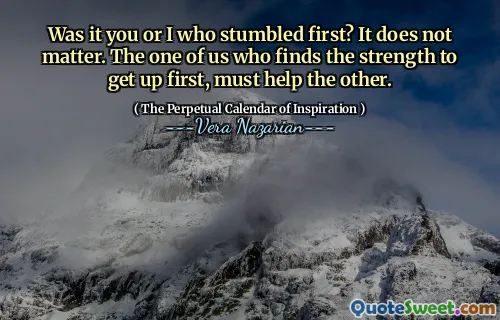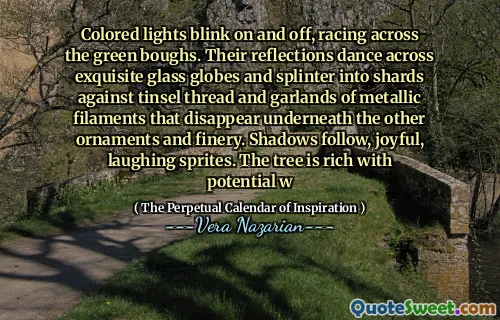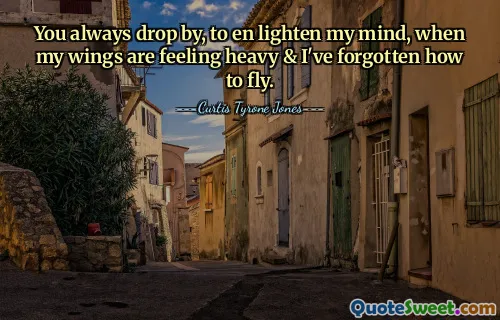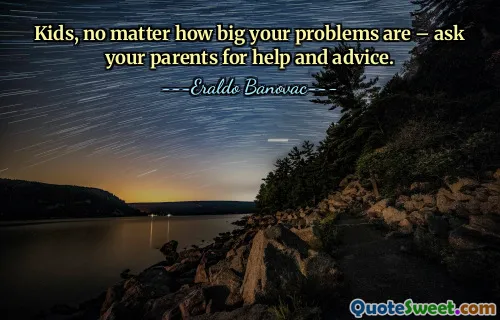
Was it you or I who stumbled first? It does not matter. The one of us who finds the strength to get up first, must help the other.
This quote from Vera Nazarian's The Perpetual Calendar of Inspiration highlights a profound truth about human resilience and support in times of difficulty. The question of who faltered initially becomes irrelevant when people encounter hardships—what's pivotal is the action of rising again and extending a helping hand. It reminds us that setbacks are inherent to life's journey, but recovery is a collective process rather than an individual race.
The emphasis on mutual support encourages empathy and community spirit. Whoever manages to gather strength first shoulders an implicit responsibility to aid the other. This creates a cycle of compassion and solidarity that transcends blame or fault. It reflects the understanding that vulnerability and struggle are shared experiences, and overcoming them often necessitates cooperation.
On a deeper level, the quote speaks to humility and selflessness. It suggests that pride or competition concerning who stumbled is pointless; instead, what truly matters is the willingness to assist each other towards recovery. This mindset can foster stronger relationships and communities, where people celebrate progress rather than assign fault.
In everyday situations, whether personal or professional, adopting this perspective promotes healing and growth. It encourages leaders and peers alike to step up not just for their own sake but also to lift those who are down. By focusing on collective resilience, we can transform setbacks into opportunities for connection and renewed strength.







